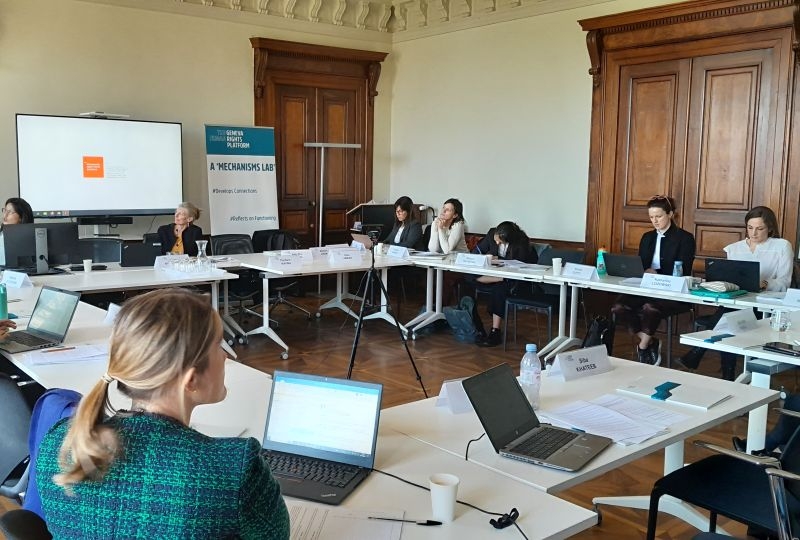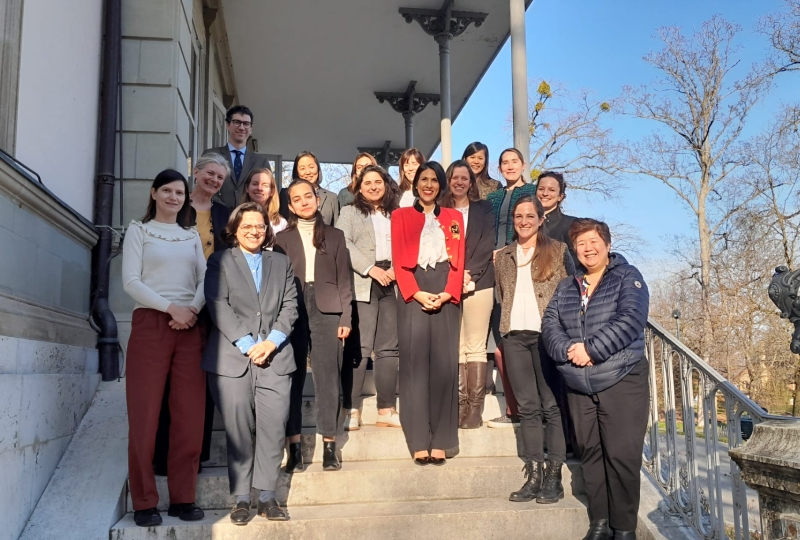Participants delved into the pandemic treaty proposal and situated it within the current global health law framework in order to shed light on and help disentangle selected issues emerging from the negotiation process.
They also focused on the intersection between global health law and international human rights law by looking at the human rights implications of the current zero draft text and, more broadly, by seeing how to improve respect for human rights in the context of pandemic prevention and response.
‘We strive, with our Training Hub, to build capacity to promote and advance human rights by strengthening the connection and synergies between human rights and other fields, like health in this case’ explains Stefania Di Stefano, Project Coordinator at the Geneva Human Rights Platform.
After providing an overview of the pandemic treaty zero draft, the International Health Regulations amendments and a series of crosscutting issues with different global health law instruments – such as the UN Convention on Biological Diversity and its Nagoya Protocol, the Pandemic Influenza Preparedness Framework – the first half of the workshop focused on the role of human rights in the negotiation process as well as opportunities for substantively strengthening human rights in the instrument.
The afternoon session then zoomed in on the right to health and economic social and cultural rights, underscoring the links and tension between public health and human rights. Participants also discussed the realization of the right to access medicines and its potential, its challenges and the legal and policy issues. The workshop also addressed the role of local and regional governments in public health protection.









